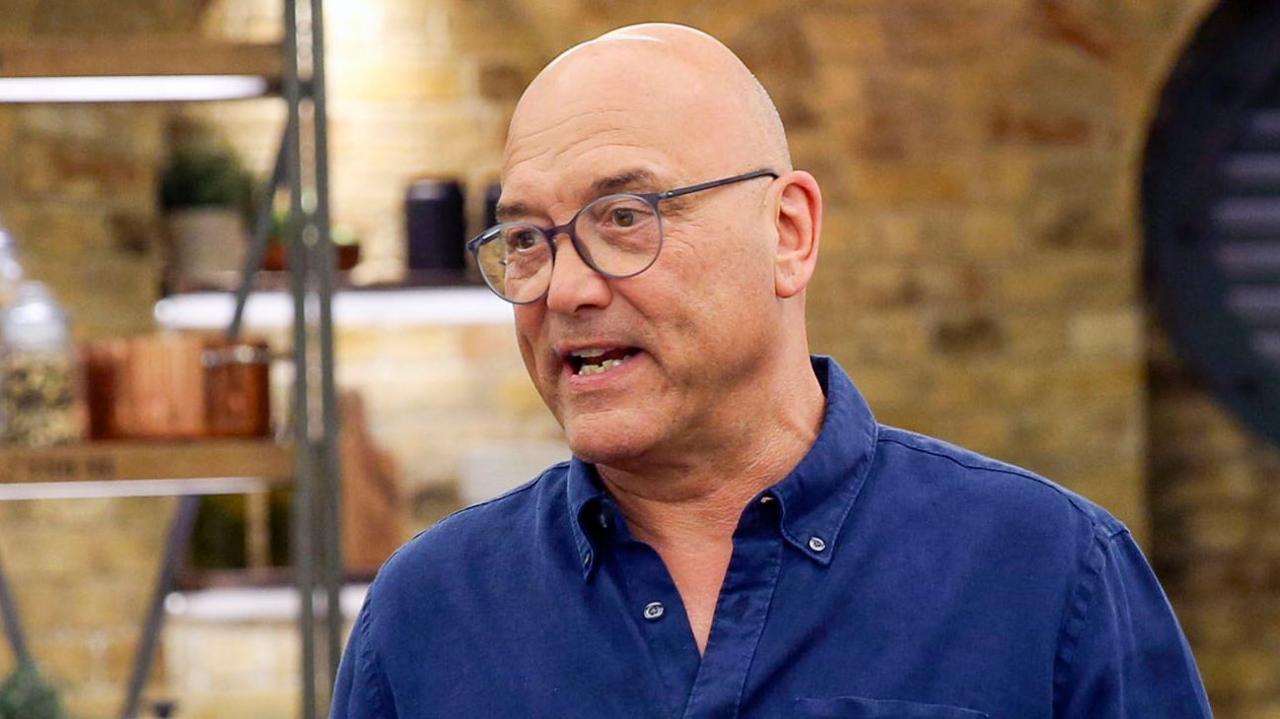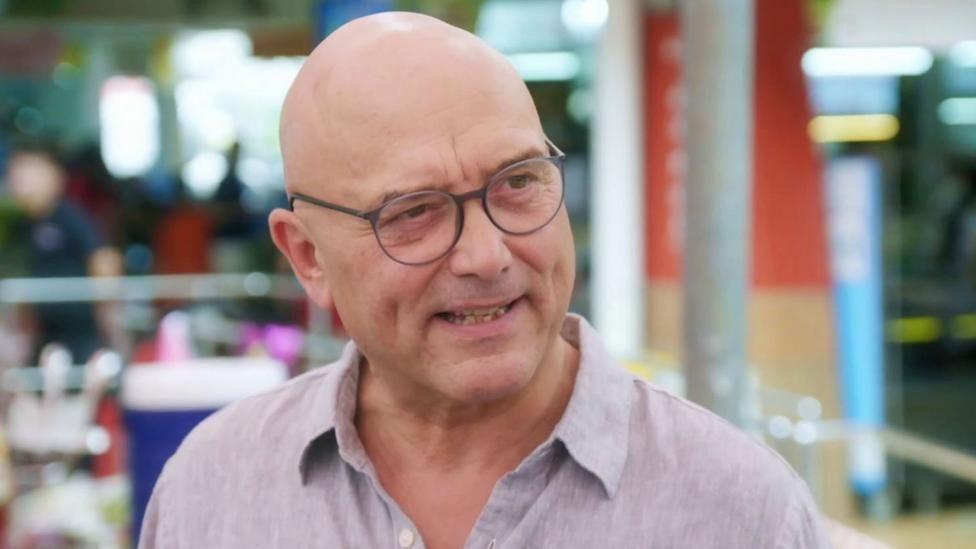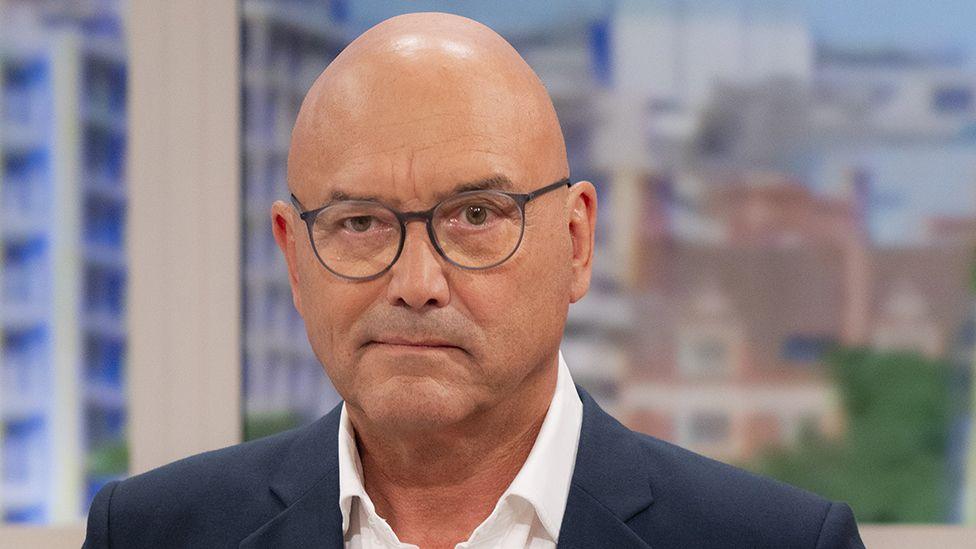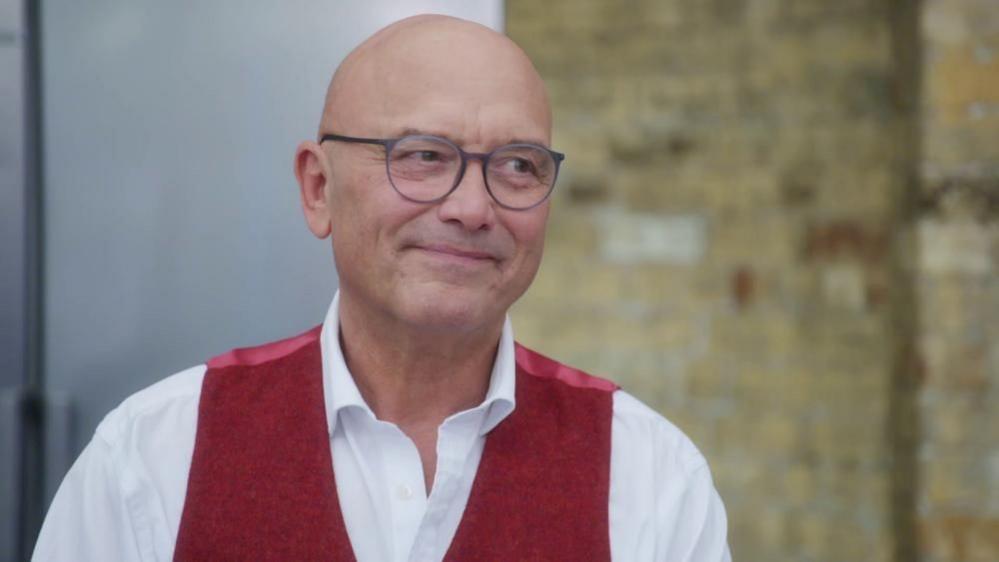Gregg Wallace faces backlash over autism defence

- Published
Former MasterChef host Gregg Wallace is facing criticism from charities and groups working with disabled people after he appeared to link claims of misconduct he is facing to his autism diagnosis.
Several dozen people have come forward to BBC News with allegations about Wallace, including inappropriate sexual comments, touching and groping, which he denies.
In a statement this week, external, the presenter defended himself and also said he had recently been diagnosed with autism, but that TV bosses had failed to "investigate my disability" or "protect me from what I now realise was a dangerous environment".
One charity told BBC News that autism is "not a free pass for bad behaviour", while other groups warned that such remarks risked stigmatising the autistic community.
Wallace has been sacked as MasterChef host, and a report into the accusations is expected to be published shortly. He has said it has cleared him of "the most serious and sensational allegations".
On Tuesday, Wallace wrote on Instagram: "My neurodiversity, now formally diagnosed as autism, was suspected and discussed by colleagues across countless seasons of MasterChef.
"Yet nothing was done to investigate my disability or protect me from what I now realise was a dangerous environment for over 20 years."
The Telegraph reported, external on Thursday that he plans to sue the BBC and the makers of MasterChef for discrimination on the grounds of his autism following his sacking.
And the Times reported, external friends of Wallace as saying his autism means he can't wear underwear, and that his condition was partly to blame for his alleged inappropriate behaviour.
Speaking to BBC News, Seema Flower, founder of disabilities consultancy Blind Ambition, said there was "no excuse" for being inappropriate to people in society.
"Where does it leave us if we use autism as excuse to behave in whatever way we like?" she asked.
Her comments were echoed by Emily Banks, founder of neurodiversity training body Enna.
"To be clear: being autistic is never an excuse for misconduct. It doesn't absolve anyone of responsibility, and it certainly doesn't mean you can't tell the difference between right and wrong."
Dan Harris, who runs the charity Neurodiversity in Business and is himself autistic, said people like him "may miss social cues sometimes".
"But autism is not a free pass for bad behaviour," he added.
"Comments like this stigmatise us and add an unfortunate negative focus on our community."
Last year, the charity Ambitious About Autism dropped Wallace as an ambassador in the wake of the original claims against him.

The comments have also sparked debate online and on radio phone-ins.
On BBC Radio 2's Jeremy Vine Show, Jessie Hewitson, Director of NeuroUniverse, said people with autism "have been stereotyped since the dawn of time".
She said she worried that remarks like this risk "forming a connection in peoples' minds - either that autistic people behave inappropriately in the workplace or that we cannot take personal responsibility".
But on social media, many people responded positively to Wallace's post and sent him supportive messages.
And on BBC Radio 5 Live's Nicky Campbell Show, which dedicated an hour to the topic on Thursday, some callers were sympathetic.
One called Danielle, who is autistic, said people with the condition "can misread situations quite often".
"I think growing up undiagnosed, you grow up thinking everything you're doing is wrong because you're different and you then internalise a lot of that so you're very oversensitive as well," she said.
Another caller, Jake, said he thought Wallace should have had support a long time ago.
"You've got a man here who's clearly out of touch, he's been out of touch for a long time, he's had nobody putting him back in line, whether that's an employer, whether that's a friend, whether that's anybody, and at the moment that's what he needs.
"He needs some compassion to get him back where he needs to be and I feel for his mental health."
Report expected
As the face of BBC One cooking show MasterChef, Wallace, 60, was one of the most high-profile presenters on British television for 20 years.
He stepped aside from the show in November after an initial BBC News investigation, when 13 people accused him of making inappropriate sexual comments.
This week, new claims have come from 50 more people who say they encountered him across a range of shows and settings.
The majority say he made inappropriate sexual comments, while 11 women accuse him of inappropriate sexual behaviour, such as groping and touching.
The inquiry into allegations of misconduct against Wallace has been conducted by an independent law firm on behalf of MasterChef's production company Banijay.
BBC News has not seen that report, but Wallace said it had found the "most damaging" allegations to be "baseless".
He also accused the BBC of "peddling baseless and sensationalised gossip masquerading as properly corroborated stories".
A spokesperson for Wallace has said he denies engaging in behaviour of a sexually harassing nature.
Banijay UK said: "While the external investigation is ongoing, we won't be commenting on individual allegations. We encourage anyone wishing to raise issues or concerns to contact us in confidence."
A BBC spokesperson said: "Banijay UK instructed the law firm Lewis Silkin to run an investigation into allegations against Gregg Wallace.
"We are not going to comment until the investigation is complete and the findings are published."
If you are affected by any of the issues in this story, help and support is available at BBC Action Line.
Related topics
- Published8 July

- Published9 July
